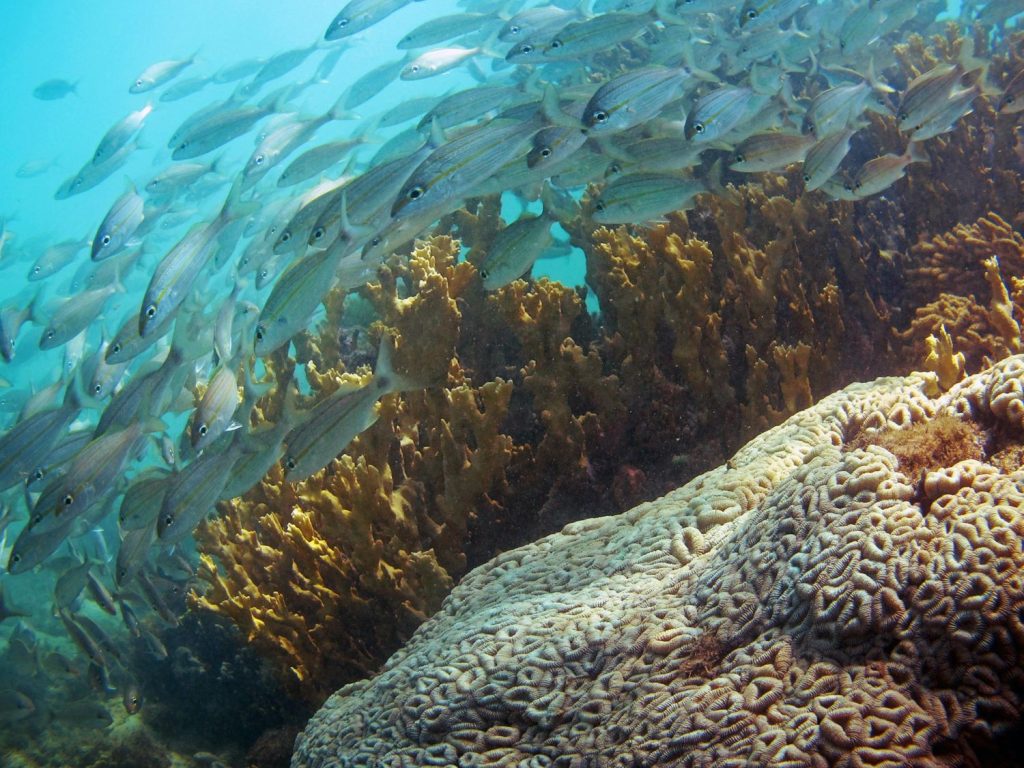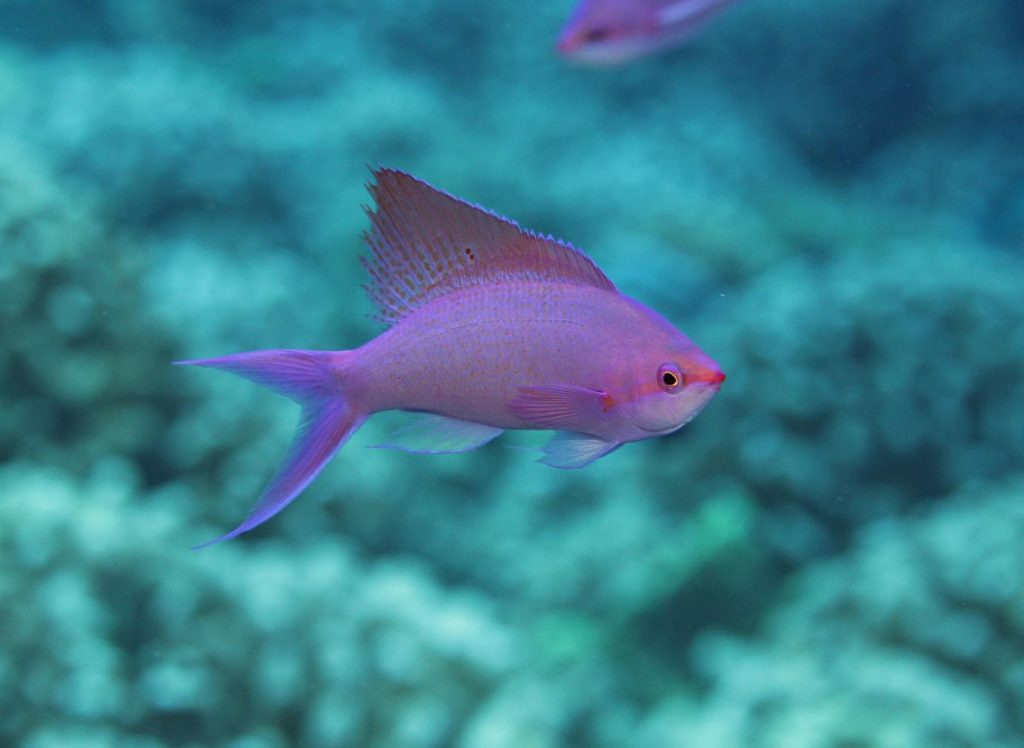Delicate Balance of Coral Reef Processes Creates Management Challenges

Research by an international team, including members from the University of Hawaiʻi at Mānoa, shows there needs to be drastic changes made to the way coral reef restoration is approached.
“This work really changes the way we need to think about coral reef conservation,” said Simon Brandl, an assistant professor at the University of Texas at Austin, in a press release. “Since we cannot maximize all aspects of functioning, we clearly need to develop a more nuanced approach to conserving coral reefs that considers local species, ecosystem dynamics and stakeholder needs.”
As coral reefs are experiencing more and more frequent disturbances, the development of local-tailored management targets might become a race against time, the release said.
The research, published in Nature Ecology and Evolution, quantified five critical ecological processes on more than 500 coral reefs worldwide. It demonstrates that five key functions performed by fish communities — the removal of algae, predation, biomass production and the cycling of nitrogen and phosphorus — are inherently interconnected.

As such, while the performance of these processes is influenced by the community structure of reef fishes on any given reef, no reef can maximize each of the five processes simultaneously.
“Imagine a coral reef fish community swirling with small fishes that feed on algae,” explained Nina Schiettekatte, the lead author, former doctoral student at the Center for Island Research and Environmental Observatory and postdoctoral fellow at UH-Mānoa’s Hawaiʻi Institute of Marine Biology, in the press release. “This community will be characterized by high algal consumption and high biomass production, but it will have low phosphorus cycling because these species excrete very little phosphorus.”
That means ecological processes on coral reefs worldwide are in a delicate balance, where it is impossible to maximize all processes, according to the release. The researchers gained this knowledge by collecting data from individual fishes and combining it with a large dataset on fish communities worldwide.
“Coral reefs are often described as the rain forests of the ocean,” said the press release. “They host a high diversity of species and are very productive.”
However, the release said climate change and local threats, such as overfishing, have caused a stark decline in coral reefs worldwide, leaving scientists questioning whether future generations will still encounter healthy, “functional” coral reefs.
“Throughout this project, we collected thousands of fishes across more than 100 species to gain detailed biological information on how they acquire and use energy and nutrients,” explained Jordan Casey, an assistant professor at the University of Texas at Austin, in the press release.
This information can then be used to understand how fish communities collectively move biomass and nutrients through the food web on coral reefs.
“Our work is novel because it quantifies multiple functions for the first time,” said Valeriano Parravicini, professor at EPHE in Perpignan, France, in the press release. “Previously, most researchers have used the biomass of a fish community as a proxy for coral reef functioning, but we show that it is critical to look beyond biomass and really disentangle the different components of functioning to understand how reefs work.”
Knowing that no reef can excel in all functions, the researchers asked whether there is a certain set of species that is more important than others. Surprisingly, according to the release, they found that no single species was consistently important across its range, but half of all species were important in at least one location.
“This means that there are no global super hero fish species for ecosystem functioning,” said Sébastien Villéger, researcher at the CNRS in Montpellier, France, in the release. “But there are many local super heroes.”






